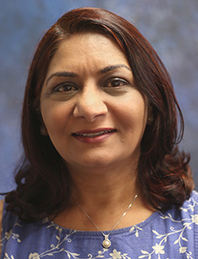Oncologists may soon be able to adjust leukemia therapy based on a patient’s personal pharmacogenomic evaluation to achieve better treatment outcomes
Oncologists who treat children with acute myeloid leukemia (AML) may soon have a new precision medicine tool for determining how well specific patients will respond to certain treatments. The “polygenic score” developed by researchers at the University of Florida (UF) uses the children’s own genetics to predict how well they will respond to leukemia treatments, according to a UF news release.
This research not only allows hospitals and oncology groups to predict how pediatric leukemia patients will respond to treatments, but also provides valuable information about how therapy can be augmented in high-risk patients.
Led by Jatinder Lamba, PhD, professor of pharmacotherapy and translational research at the UF College of Pharmacy, the researchers focused on predicting the effectiveness of a common chemotherapy drug used to treat AML.
The UF researchers published their findings in the Journal of Clinical Oncology, titled, “Polygenic Ara-C Response Score Identifies Pediatric Patients with Acute Myeloid Leukemia in Need of Chemotherapy Augmentation.”
“Cytarabine (ara-C) is the mainstay of acute myeloid leukemia chemotherapy. The key objective of this work is to establish pharmacogenomics-based personalization of ara-C therapy to enhance treatment outcome,” the researchers wrote in their paper.
“The score gives clinicians a new tool to devise an effective treatment strategy and deliver the best possible outcome to AML patients. It also has the potential to improve the guidelines for delivering AML chemotherapy,” Lamba said.
Using Genetics to Predict Treatment Outcomes
AML is a form of leukemia that primarily affects children, and the chemotherapeutic drug cytarabine (ara-C) is a core part of the treatment for these patients. However, while cytarabine is a very effective medication, it fails to work in 10-15% of patients, and relapse will occur in 40% of patients who are successfully treated, the news release noted.
“Cytarabine must be activated to effectively kill leukemia cells, but the amount of activation varies based on an individual’s genetics,” Lamba said. “We anticipated our score would predict the outcome—and it did—but what was really interesting is that we were able to show if the patient had a low, or detrimental score, the outcome could be improved by augmenting the patient’s therapy.”

The UF study involved over 1,000 patients being treated at multiple sites by both St. Jude Children’s Research Hospital and the Children’s Oncology Group. The score was generated by evaluating each patient’s genetic profile and correlating it with the amount of cytarabine active in their bloodstream. This score not only enables clinicians to predict the response of individual patients, but also allows therapy to be tailored to specific individuals.
How Ethnicity May Impact Patients’ Response to Treatments
The UF researchers also considered whether the patient’s race or ethnicity affected the score. They found that “the high score significantly differed by race, with 70% of white patients and only 30% of black patients having a beneficial score,” the UF news release noted.
“This study opens opportunities for examining how race and ethnicity impact AML patient response to cancer treatments,” Lamba said.
“Dr. Lamba’s innovative research program explores hidden genetic complexity behind response to therapy and serves as a cautionary lesson to all cancer researchers to enroll robust numbers of diverse individuals in clinical trials, in order to elucidate and address disparities,” added Jonathan Licht, MD, director of the UF Health Cancer Center. “This is a theme embraced across all UF Health Cancer Center research programs.”
This newly developed polygenic score may be a boon children’s leukemia treatment worldwide. The ability to predict how AML patients will respond to certain chemotherapies, and augment that treatment based on the individual’s pharmacogenomic evaluation, will enable oncologists to provide optimal care for their patients and stay on the cutting edge of pediatric oncology precision medicine.
—Caleb Williams
Related Information:
UF Researchers Develop Genetic Score to Improve Pediatric Cancer Treatments
